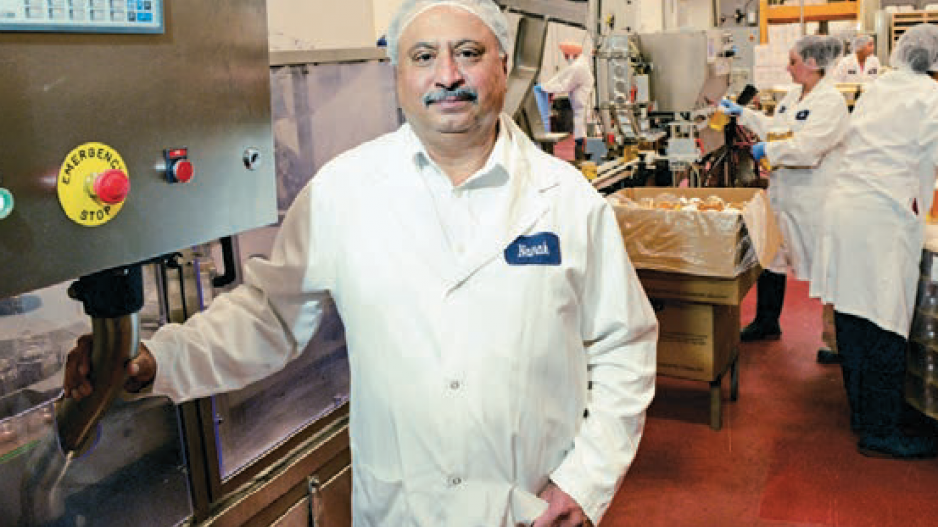Gurpreet Arneja is the owner of Surrey’s Nanak Foods, which specializes in Indian dairy products such as paneer (fresh cheese), dahi (plain yogurt) and ghee (clarified butter). He ships his products all over the world, to various countries, pretty much everywhere – except India.
“India would be dear to us,” Arneja said. “It is a very sizable market; it is a natural market for us – however, we’re not able to export there.”
Arneja said unreasonably high tariffs and an apparent high level of estrogen found in Canadian dairy products make it impossible for him to export to the world’s second most populous nation and No. 1 dairy consumer. However, he suspects it’s more than just the hormone issue.
“It could be a political issue as well; dairy is a very big industry in India. I think India is one of the largest milk-producing countries, and on the same hand the consumption is huge as well. It’s astronomical.”
Lisa Murphy, a media relations staffer with the Canadian Food Inspection Agency, said specific regulations come into effect when shipping dairy to India.
“For estrogen, India requires exporters of Canadian milk to obtain certification from the Canadian Food Inspection Agency that the animals were not subjected to estrogen treatment in the last 90 days. In Canada and many other countries, it is common for estrogen to be used to correct or treat various conditions in dairy cattle.”
In 2013, Canada exported over $262 million worth of dairy all over the world. However, only $330,318 of that went to India. On October 12, International Trade Minister Ed Fast will lead a five-day trade mission to India. Arneja said he was invited to attend but declined, saying, “I would just be spinning my wheels” in trying to open up Canadian dairy exports to India.
Don Jarvis, president of the Dairy Processors Association of Canada, which represents some dairy heavy hitters including Kraft and Danone, said he hasn’t heard of the estrogen argument coming from India, however he does know one thing: dairy exporting is becoming big business, and Canada might be missing out when it comes to shipping to India, and in general overall.
“Dairy is quite substantial, it grows dramatically year by year and its particular ingredients like protein concentrate, skim milk powder, these are all internationally traded commodities traded worldwide now.”
In fact, according to the federal government’s Dairy Information Centre, exports of dairy products actually declined in 2014, from $262 million in 2013 to $187 million.
Canadian dairy exports in 2003 were at an all-time high of $314 million, and they have yet to return to those numbers. A 2012 Agriculture and Agri-Food Canada bulletin outlined the drop in exports, stating, “This suggests that in 2012 we lost southeast Asian market share to New Zealand who is the major supplier of whey products to the region.” Dairy is by far New Zealand’s biggest export, accounting for $13.7 billion, and the country’s government has led a concerted push to crack the Indian dairy market.
“Canada is not really an exporting dairy country,” added Arneja. “We’re not like New Zealand or Australia or some of the European countries where exporting dairy is a primary industry.
“We’re in the supply management business, so in Canada we only really produce what we consume, and our prices are where they are.”




